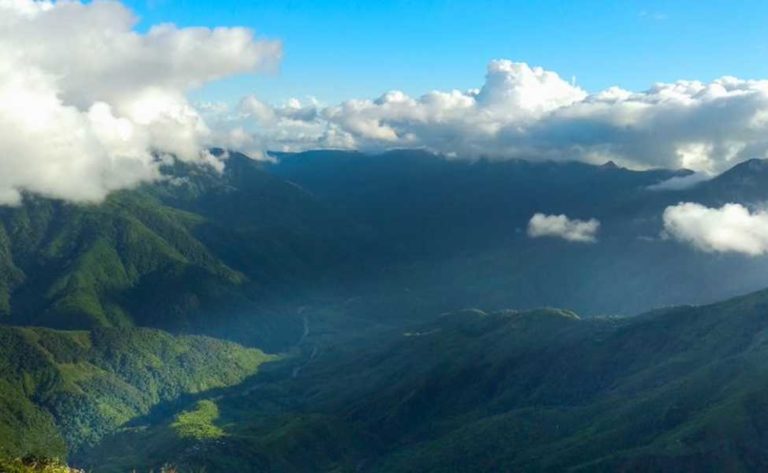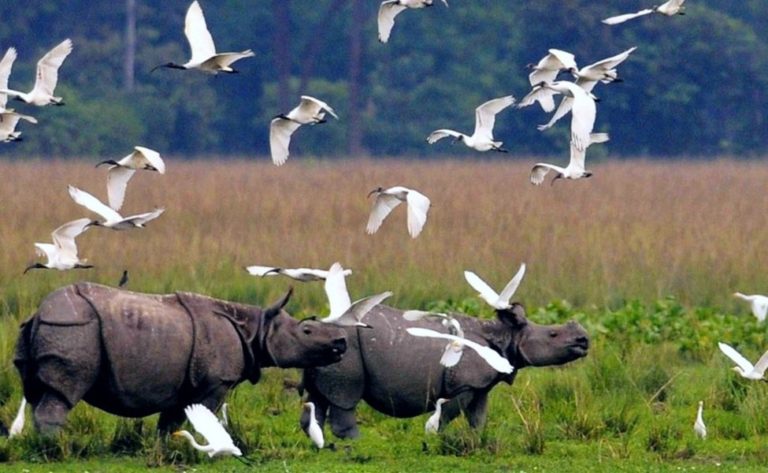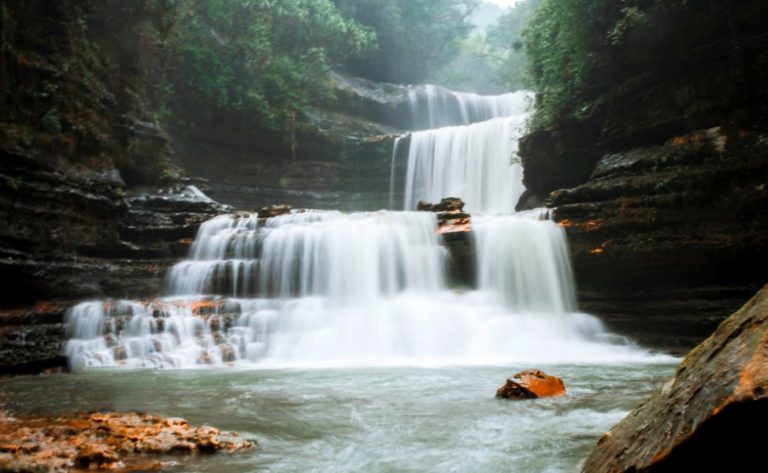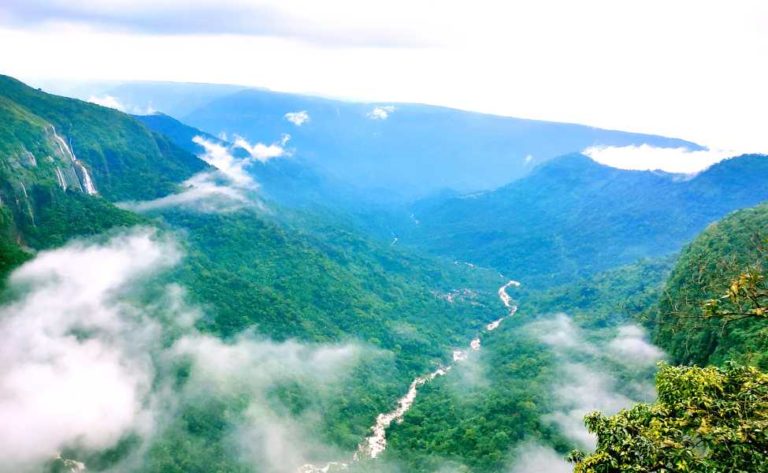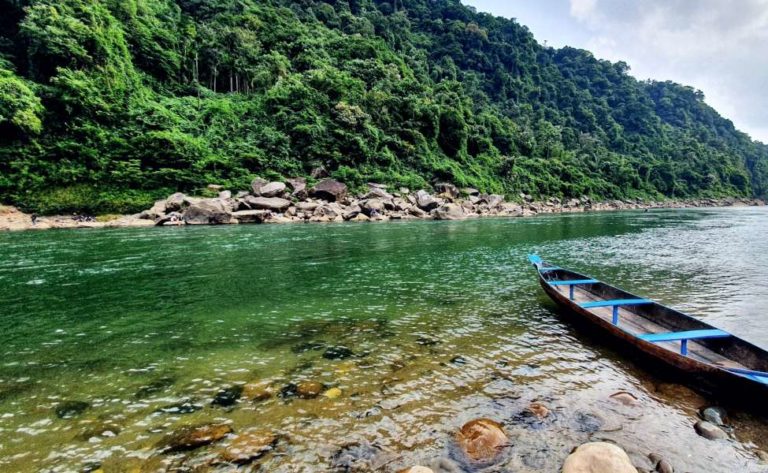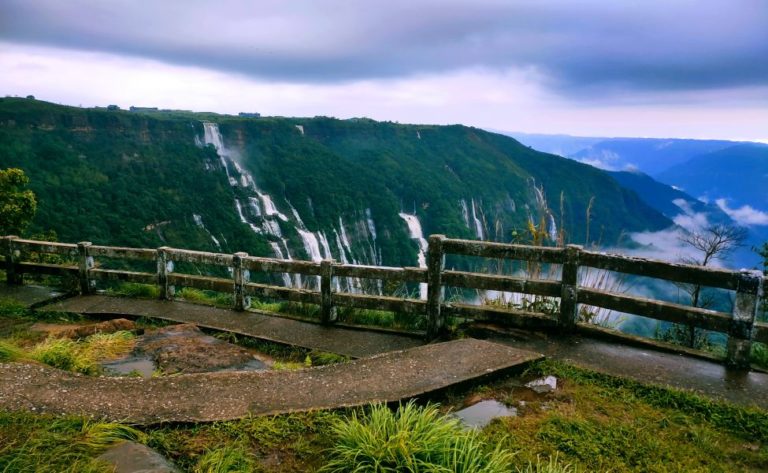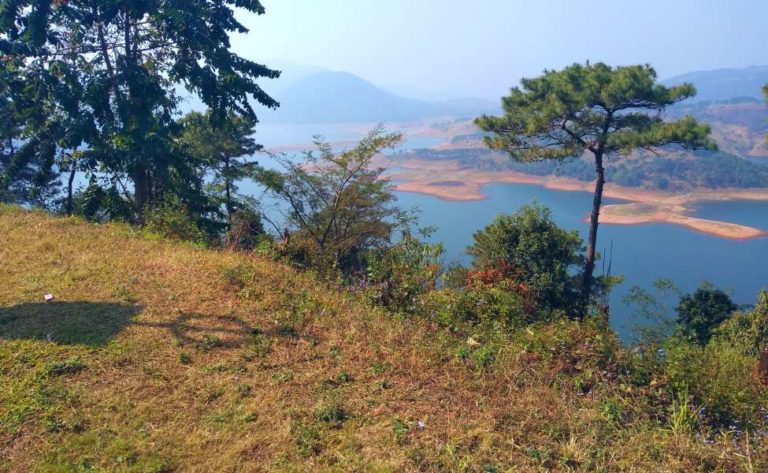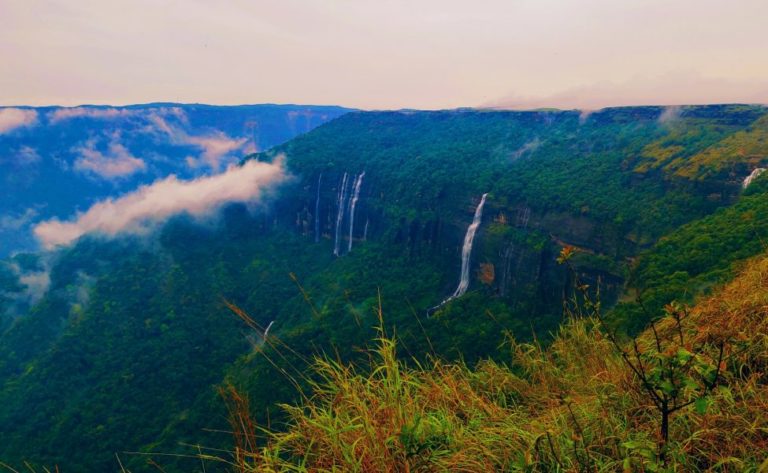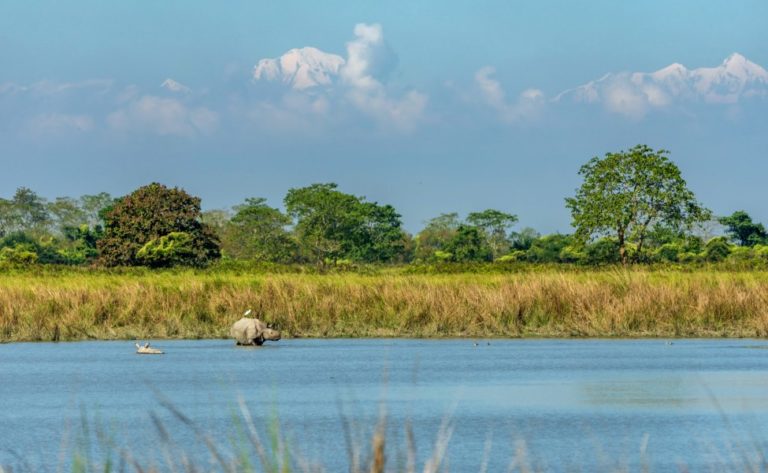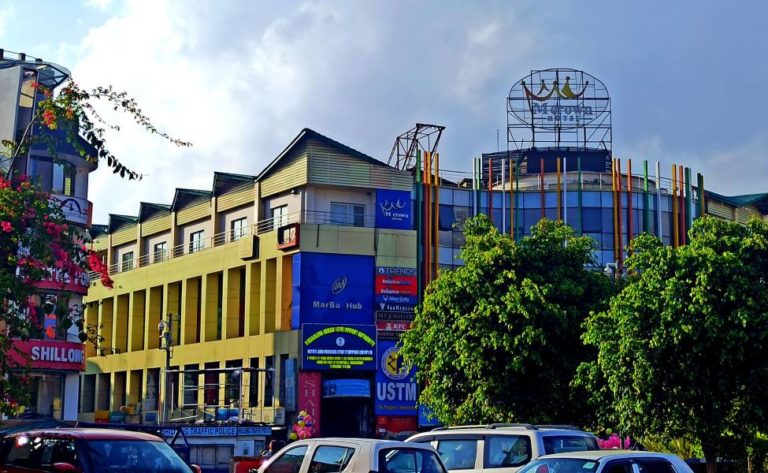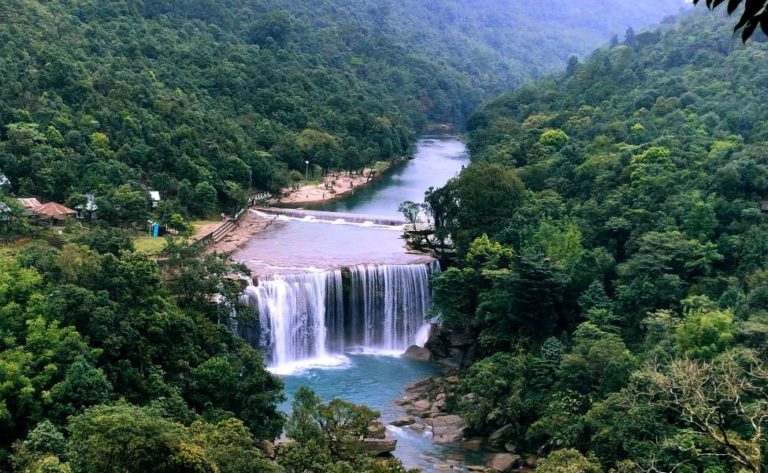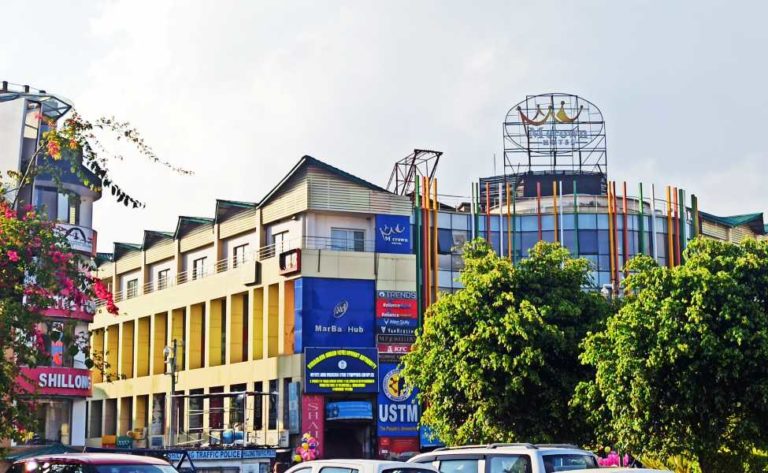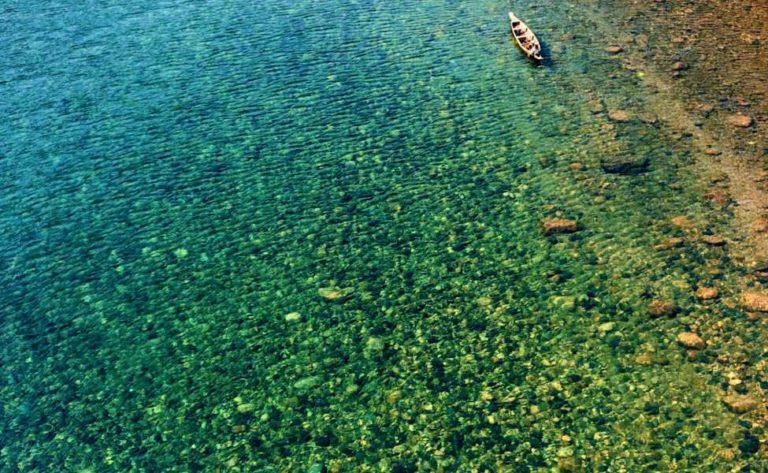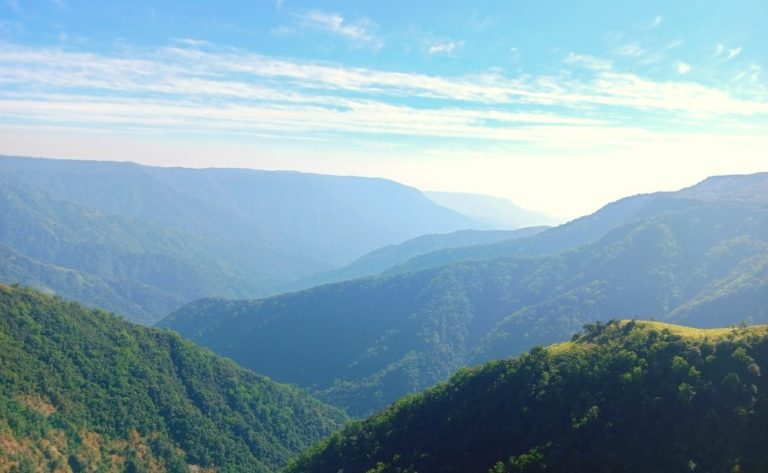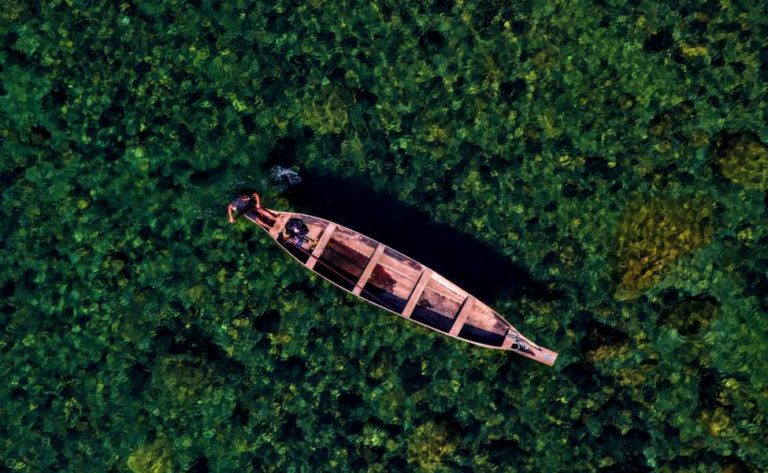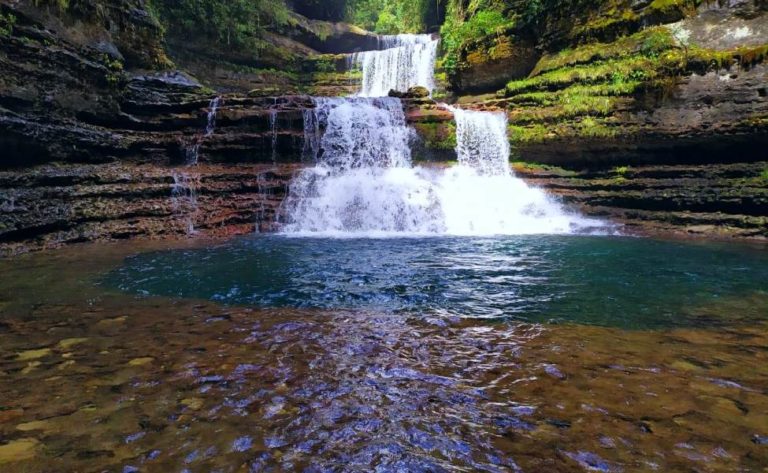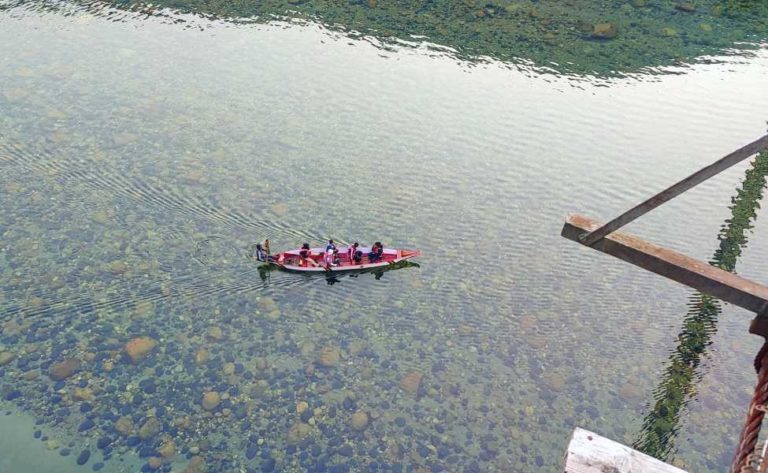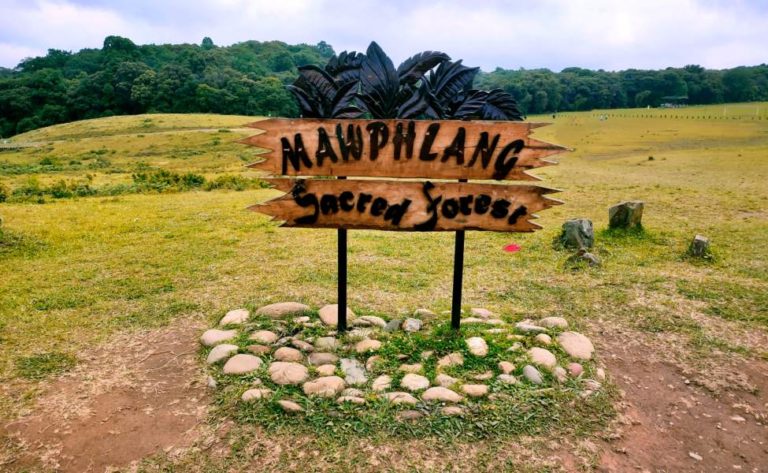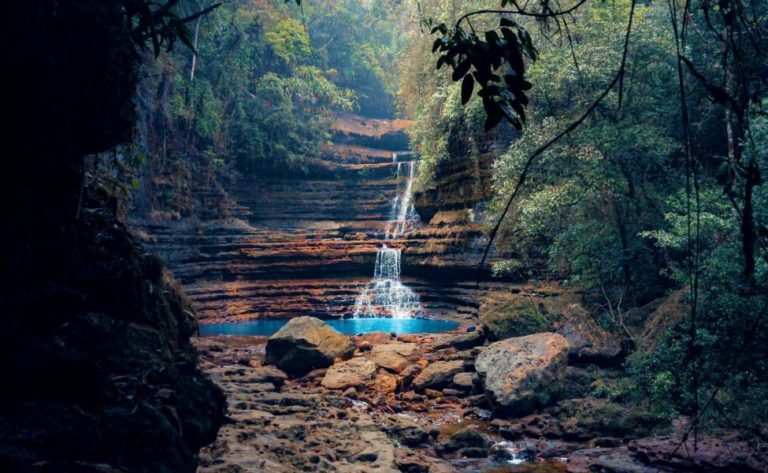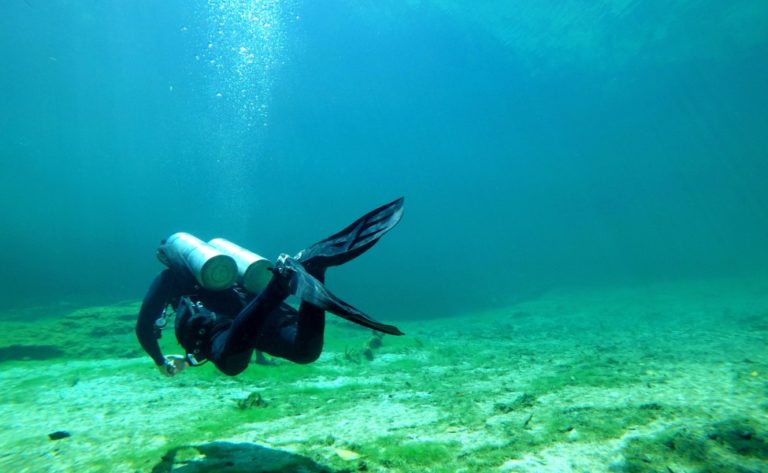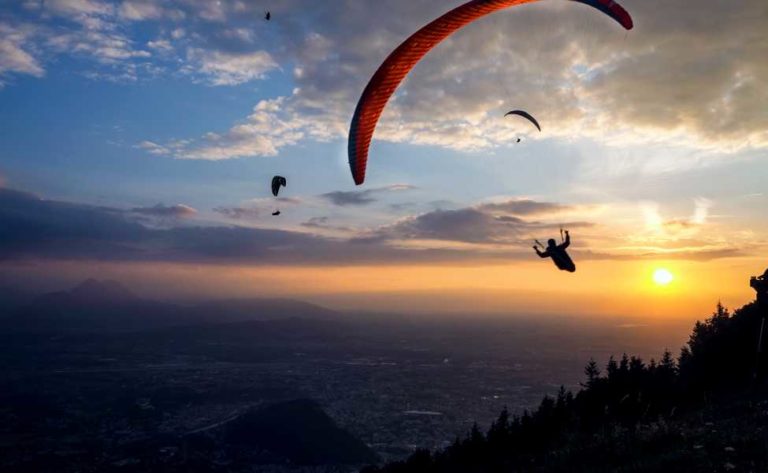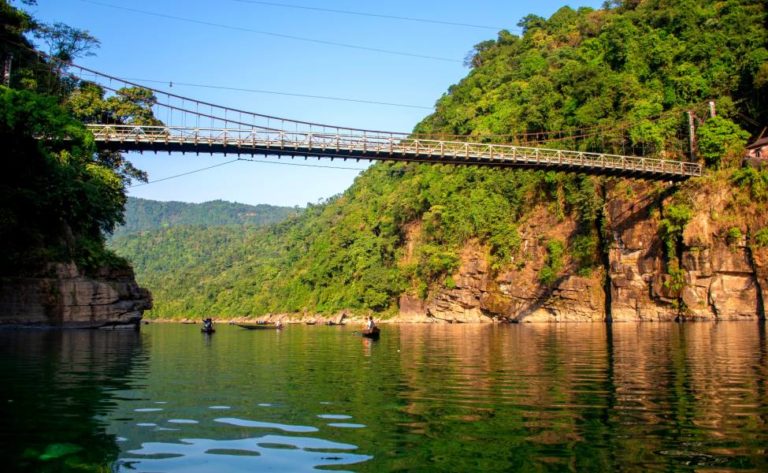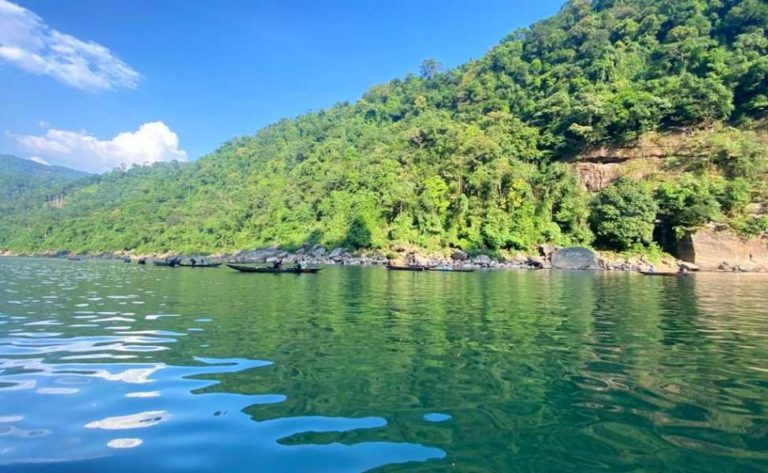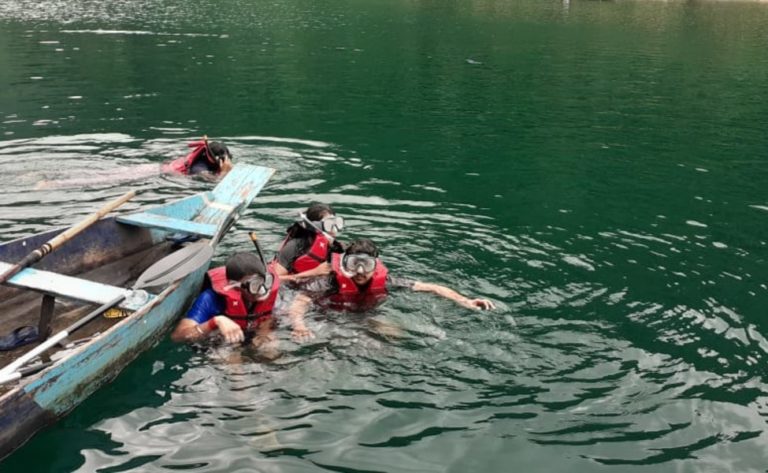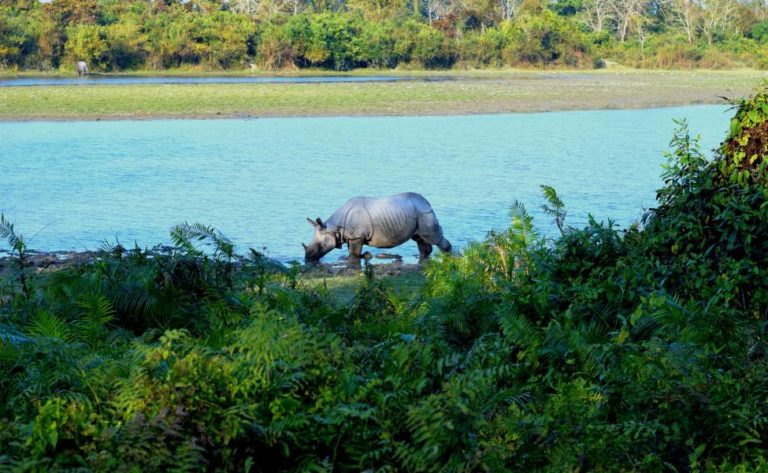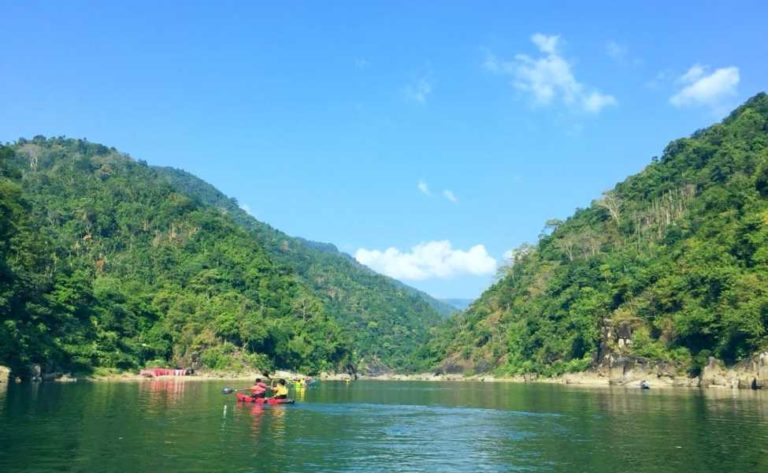
Things to do in Majuli
Things to do in Majuli
Majuli is a beautiful place to visit and the cultural capital of Assam. One of India’s largest tribes resides there, making it the most massive river island in the planet. It is known for its cultural and natural beauty, and there are several activities that visitors to the island can participate in. A journey to Majuli Island is a surreal journey to the opposite bank of Assam’s powerful Brahmaputra River.
Travel Guides
Things to do in Majuli
Let’s examine the activities in Majuli. Let’s get started
Visit the Satras
Majuli is home to several ancient Satras (monasteries) widely recognized for their rich cultural heritage. These Satras are residence to many Vaishnavite monks, and visitors can gain knowledge about the region’s culture and traditions by viewing these monasteries.Both the travel there and the Satra itself are breathtaking. The roads are surrounded by lakes with water hyacinth and wooden boats floating in them on both sides. Moreover, people here strongly worship Mahaprabhu Jadavarai.Majuli, the largest river island in the world, is home to many satras, which are monasteries of the Neo-Vaishnavite tradition. These satras were established by the 15th-century saint and philosopher Srimanta Sankardeva and his disciple Madhavdeva to spread the teachings of Bhakti Yoga and Vaishnavism.
Here are a few satras that you can visit in Majuli:
Auniati Satra:
This satra is known for its ancient manuscripts, weapons, and musical instruments that are on display for visitors. Additionally, it contains a museum where you may study Majuli’s history and culture.
Garamur Satra:
This satra is famous for its traditional dance performances and handicrafts made by the monks. It also contains a museum that displays Majuli’s culture and past.
Dakhinpat Satra:
This satra is known for its beautiful temple and the unique architecture of its buildings. It is also home to a library that has a collection of ancient scriptures and manuscripts.
Kamalabari Satra:
This satra is famous for its annual festival, Raas Leela, which is held in November and attracts thousands of visitors. It also has a museum that showcases the history and culture of Majuli.
Explore the natural beauty
Visitors can explore many nature trails in Majuli, which is home to a wide variety of plants and fauna.Numerous bird species live on the island’s marshes, including the highly endangered Siberian Crane. In the Indian state of Assam is the lovely island of Majuli.
It is recognised for its rich cultural diversity and stunning natural surroundings. The island is home to a vast range of flora and fauna, including pelicans, herons, and egrets among other kinds of birds. Numerous kinds of mammals and reptiles, including the Asian elephant and the Indian rhinoceros, can be found on the island.
Majuli’s breathtaking terrain, which is made up of undulating hills, thick forests, and flowing rivers, is one of its most outstanding features. The island is covered in tiny settlements and historic temples, which are the repository of a rich cultural legacy. The Majuli people are renowned for their traditional fabrics and handicrafts, which are created from raw materials including jute, silk, and bamboo.
Majuli is renowned for its fascinating history in addition to its natural and artistic beauty. There are several historical structures and monuments on the island, which previously served as the seat of the ancient kingdom of Ahom. It also serves as the setting for a variety of annual festivals and celebrations.
The variety of flora and wildlife in Majuli is one of the most notable aspects of its natural beauty. Numerous rare and endangered kinds of plants and animals can be found on the island. On the island, there are a lot of wetlands and bird sanctuaries that are home to a variety of migratory and resident species.
Majuli is renowned for its beautiful vistas in addition to its variety of plants and animals. A walk around the countryside on Majuli may be a wonderfully beautiful and tranquil experience because the island is situated in an area of Assam famed for its undulating hills and verdant woods.
Overall, Majuli’s natural beauty is one of the island’s main draws for tourists, and it is a special area that is well worth seeing.
Participate in cultural activities
Visitors to Majuli can take part in a variety of cultural activities, such as visiting regional festivals and events or discovering traditional handicrafts, as a result of the city’s rich cultural legacy.
Mask making:
The island of Majuli is renowned for its distinctive mask-making heritage, with local artists producing masks for use in the numerous local dance and theatre productions. In order to learn about the process and perhaps try their hand at producing their own mask, visitors can take part in classes or visit studios.
Satriya dance:
Traditional dance known as satriya, which has its roots in Majuli, is now regarded as one of India’s classical dance genres. Visitors can participate in workshops to learn the steps or watch performances of this dance, which is distinguished by complex footwork and hand motions.
Pottery:
Majuli has a long-standing heritage of pottery making, with numerous local potters producing exquisite clay vases, pots, and other ornamental pieces. To learn more about the manufacturing of pottery and even try their hand at moulding and embellishing their own pottery, visitors can stop by studios or workshops.
Boat making:
Making miniature boats and canoes from of locally available materials like bamboo and wood is a long-standing custom among the Majuli people. To understand more about the process and observe the boats being built, visitors can stop by local boat-building workshops.
Farming:
On Majuli, farming is a significant aspect of daily life and is the main source of income for many local households. Visitors can get involved in farming tasks like planting rice or harvesting crops, or even sign up for a cooking lesson to learn how to make regional specialties using farm-fresh ingredients.
Visit the Majuli village
A group of people who live according to the customs of the Mishing people reside in the Mishing village of Majuli. By visiting the village, visitors can discover more about the customs and culture of the Mishing people. As beautiful as the island itself are the settlements of Majuli. Charming settlements in Majuli provide you the chance to re-connect with the natural world. The best way to discover these hamlets is to take your time.
One of the most well-known communities is Mishing Village. It’s nice to get to know the welcoming Mishing folks. They typically reside in Chang ghars, dwellings with raised platforms along the banks of the river.
In the Indian state of Assam’s Brahmaputra river sits the sizable river island known as Majuli. There are many communities there, each with its own own culture and traditions.
Some of the villages in Majuli include:
Bongaon:
This community is well-known for its traditional pottery production, with potters using local clay to make a wide range of containers, pots, and other objects.
Dakhinpat:
This community has several talented weavers who produce exquisite handwoven fabrics, and it is well-known for its traditional satras (monasteries).
Garmur:
This community is well-known for its lively festivals and authentic dance performances, and the yearly Raas Lila festival attracts a large number of residents.
Kamalabari:
This hamlet, which is famed for its ancient boat-making industry, is home to multiple satras.
Khalihamari:
Traditional masks from this area are well-known for being utilised in a variety of events and performances.
Samuguri:
This community is well-known for its traditional bamboo craft, in which residents use bamboo to make a wide range of items, including mats, baskets, and baskets.
Overall, Majuli’s villages are rich in culture and customs, with an emphasis on crafts, festivals, and the arts.
Take a boat ride
A boat journey on the Brahmaputra River is the greatest way to see Majuli. Take a boat trip around the island to view the many settlements and topography that make up Majuli. You can see and feel the powerful river up close and personal at Majuli, Assam. Rent a small boat and start rowing down the river to do this..
Create lifelong memories by singing songs, admiring the surroundings, and navigating the canals and rivers. Indian honeymooners might anticipate the most romantic trip of their life. On a boat journey through its canals, Majuli, the biggest river island in the world, reveals its splendour. Enjoy the breathtaking views of the lush, green surroundings, complete with paddy fields and palm tree groves, as you float across the river.
Watch out for the island’s many bird species, such as the endangered spot-billed pelican and Asian openbill stork. Additionally, you could see local fisherman at work, utilising conventional techniques to get their daily catch.
You’ll see lovely villages and historic temples as you travel farther, providing you with a look into Majuli’s rich cultural heritage. Bring your camera if you want to capture the amazing splendour of this one-of-a-kind location.
You’ll feel calm and tranquilly when the boat voyage comes to a conclusion, knowing that you’ve just had an adventure that is genuinely one of a kind.
A boat journey can provide the chance to observe some of the island’s uncommon and endangered species up close. The island is home to a vast diversity of flora and animals. A boat trip can be a great opportunity to see these birds in their natural habitat since the island’s wetlands and bird sanctuaries are home to a diverse variety of migratory and resident birds.
As the island of Majuli is home to several indigenous groups, each with their own unique customs and ways of life, a boat journey there may also be a cultural experience. An opportunity to view some of these villages and discover their customs and practises may be found on a boat journey.
Overall, Majuli’s natural beauty, cultural variety, and spiritual importance may all be explored while on a boat journey, which is sure to be a fascinating and enlightening experience.
Learn about the island’s culture and history
Numerous indigenous villages, each with its own distinct culture and customs, can be found in Majuli. By visiting the villages and interacting with the locals, you may discover more about their cultures. The Indian state of Assam is home to the sizable river island of Majuli. It is renowned for its extensive cultural and historical legacy and is the biggest river island in the world.
The island has a lengthy past that dates back to antiquity. It served as a regional centre for both art and culture as well as trade and business. The Mishing, Deori, and Sonowal Kacharis were among the numerous distinct groups that called the island home. The distinctive customs and culture of Majuli are a result of these groups.
Pottery, weaving, and masks are just a few of the traditional handicrafts produced on the island. Local marketplaces sell these handicrafts, which are created using conventional methods. Numerous ancient dance styles, like the Bihu and Sattriya dance, are also practised on the island.
Hinduism has a strong tradition in Majuli, and the island is home to several historic temples and shrines. A well-liked shrine, the Dakhinpat Satra is frequented by both residents and visitors. It is revered for its exquisite architecture and is devoted to the Hindu deity Vishnu.
Majuli is a distinctive location that is full of cultural diversity and history. Anyone who is interested in learning more about India’s cultural heritage should go there.
Making masks is one of Majuli’s most distinctive cultural practises. Many of the mask-making villages on the island produce hand-crafted masks for use in the “Ankia Naat” and “Bhaona” traditional dance-dramas. These masks are carefully painted and ornamented with a broad variety of colours and motifs. They are fashioned from a variety of materials, including clay, wood, and paper mache.
The spiritual importance of the island is a significant component of Majuli culture. Many Hindu and Vaishnavite sects regard Majuli as a sacred location, and it is the location of several old temples and monasteries. Many people travel to Majuli to learn and engage in this spiritual practise since the island serves as a hub for the Assamese Vaishnavite tradition.
Majuli is well-known for its traditional crafts and vocations in addition to its cultural and spiritual heritage. Many of the island’s populations engage in traditional crafts including weaving, pottery making, and boat building, which are passed down from one generation to the next.
Overall, Majuli’s culture is an exceptional and varied fusion of customs, spiritual traditions, and creative traditions that all contribute to the island’s rich and dynamic cultural legacy.
Try local foods and crafts
Delicious regional fare from Majuli, including laksa and a kind of rice cake called pitha, is well-known (a spicy noodle soup). Additionally, you may shop for regional fabrics and handicrafts like handwoven saris and baskets.
In Majuli, local specialties and crafts include:
Handcrafted pottery: Majuli has a long history of making pottery. The artists make lovely pots, vases, and other ornamental pieces using the conventional “coiling process.” These ceramic pieces are kiln-fired using clay that may be found nearby.
Handwoven silk fabrics: Majuli is renowned for its complex handwoven silk textiles, which are produced using the age-old “ahimsa silk” method. The silkworms used in this method are those that are not destroyed during the manufacture of silk. Traditional Assamese sarees and other clothing are made from the materials.
Local rice varieties: Local rice types including “kharoli,” “matam,” and “dhekiakhoi” may be found in Majuli. These organically farmed rice types are renowned for their distinct flavours and health benefits..
Assamese tea: Majuli residents love Assamese tea because of its distinctive flavour and scent. It is brewed from tea leaves that are cultivated nearby and is frequently served with milk and sugar.
Handmade bamboo products: In Majuli, bamboo is a widely utilised material that is used to create a wide range of products, including baskets, mats, and other ornamental objects.
Take a walk in the nature
There are several parks and natural reserves on the island, which are wonderful locations to take a walk and take in the beauty of the surroundings. Walking through Majuli’s verdant woodlands, one might get a sense of serenity and quiet. It’s peaceful because of the birds chirping, the rustling of the leaves, and the light air. You could encounter a variety of flora and animals as you stroll over the walkways, including big trees, exquisite flowers, and perhaps even some wildlife. Numerous bird species, such as pelicans, herons, and egrets, as well as other reptiles and animals, may be found on the island.
You could stumble upon one of the several little communities that dot Majuli’s countryside while you continue walking. You could even be invited to join them for a dinner or a cup of tea because the inhabitants are so amiable and kind. No matter where your stroll leads you, Majuli’s stunning scenery and serene atmosphere are certain to make a lasting effect on you.
On Majuli, taking a nature stroll may be quite enlightening and restorative.
Numerous rare and endangered kinds of flora and animals may be found on the island. On the island, there are a lot of wetlands and bird sanctuaries that are home to a variety of migratory and permanent species.
Majuli is home to several indigenous groups, each with their own unique customs and ways of life, so taking a stroll around the towns and countryside can be both a cultural and educational experience. A walk in the nature on Majuli is certain to be an unforgettable and educational experience, regardless of your level of interest in nature, culture, or simply finding a peaceful and lovely place to spend some time. Many of these communities are engaged in traditional crafts and occupations, such as pottery, weaving, and boat building, which visitors can learn about and observe in action.
Visit the handicrafts centers
There are various places on the island where you can view the crafts being created and buy some to take home as gifts because Majuli is well-known for its handicrafts. In Majuli, there are several handicraft shops that provide a variety of traditional handicrafts. Among the prominent ones are:
Bishnupriya Handicrafts:
Bishnupriya Handicrafts, a centre for traditional Assamese handicrafts, is situated in the heart of Majuli. They provide a variety of goods, such as handmade textiles, traditional masks, brass and bell metal crafts, and more.
Xatradhara Handicrafts:
This facility is situated in the Xatradhara hamlet and focuses on producing traditional bamboo handicrafts. They supply a variety of goods, such as bamboo trays, baskets, and other ornaments..
Karukuti Handicrafts:
This shop, which is situated in the village of Karukuti, specialises in antique terracotta and clay sculptures. They sell a variety of goods, such as clay pots, figurines, and ornaments..
Sattra Handicrafts:
This shop, which located in the village of Auniati, sells various traditional handicrafts such hand-woven textiles, brass crafts, and bell metal sculptures..
Sangha Handicrafts:
This shop, which is situated in the village of Sangha, specialises in antique silk and cotton textiles. They provide a variety of goods, such as traditional apparel such as saris, dupattas, and other stuff..
Satriya Art Gallery:
This art gallery, which located in the centre of Majuli, sells a variety of traditional handicrafts and original pieces of art created by regional artists..
Kamalabari Satra:
The beautiful masks made at this historic satra (monastery) and other local handicrafts are well-known. The satra sells handmade goods, and visitors may see the artists at work..
Samaguri Satra:
Visitors may see the craftsmen at work and buy handcrafted goods from the satra, which is well-known for its traditional brass and bell metal crafts.
Dakhinpat Satra:
Traditional woven goods from this satra include Mekhla Chadars (classic Assamese gowns) and Gamochas (traditional Assamese towels). Visitors may visit the satras to witness the artists at work and purchase their handcrafted goods..
Garamur Satra:
Visitors to this satra may see the craftsmen at work and buy their handcrafted creations from the satra, which is recognised for its traditional pottery and terracotta crafts.
Explore the island on a bicycle
Take your time exploring the island on a rented bicycle while taking in the sights and sounds of rural Assam. It is the world’s largest river island and a fantastic location for a bike journey. Renting a bicycle and taking a leisurely ride across Majuli is the ideal way to discover the island. You may begin your journey at Majuli, the island’s capital, then travel to the numerous communities. The island is home to various indigenous populations, and you may learn about their culture and customs by visiting their houses and engaging with them.
You will see lovely rice fields, verdant woods, and attractive temples as you cycle around the island. The Satras, which are historic monasteries that were established by the famous Vaishnavite saint Srimanta Sankardeva, are one of the must-see temples in Majuli. The island’s culture and history may be discovered in these monasteries.
Additionally, you may go to the many handicrafts shops in Majuli to discover how the regional craftspeople create their classic items. You may purchase some mementos from the island’s famed pottery, handlooms, and mask-making factories to send home with you. You may pause during your bike journey to sample some of the delectable Assamese food at one of the many nearby eateries. There are also a number of tiny tea shops on the island where you can unwind with a cup of tea and take in the breathtaking scenery..
Overall, riding around Majuli is a great way to take in the island’s stunning scenery and fascinating culture. So, be sure to add a trip to Majuli in your schedule if you want a special and unforgettable vacation.
Frequently Asked Questions on Things to do in Majuli
Northeastern India’s state of Assam is home to the river island of Majuli. It is located beside the Brahmaputra River, the area’s lifeblood.
With traces of human occupancy dating back to the third century BC, Majuli has a lengthy and diverse history. With several monasteries and temples, the island has served as a significant cultural and religious hub for many years. The Vaishnavite movement, which began in the 15th century and greatly influenced the island’s culture and customs, had its main focus at Majuli.
Numerous indigenous villages, each with its own distinct culture and customs, can be found in Majuli. Due to the abundance of monasteries and temples there, the island serves as a centre for both cultural and religious activities. A number of cultural festivals and events are also held on the island throughout the year, such as the Raas Festival, which commemorates the triumph of Lord Krishna over the demon king, Narakasura.
Majuli is dealing with a lot of issues, such as recurrent floods that has caused erosion and land loss. Environmental issues on the island include pollution and over exploitation of natural resources. Sea levels are expected to rise, which poses a threat to partially drown the island due to climate change.
The inhabitants of Majuli are striving to save their island and distinctive culture despite these difficulties. There are initiatives underway to support sustainable development and inform people of the value of environmental preservation. Governmental and non-governmental groups are also striving to aid the neighbourhood and save the island’s natural resources.
With a total size of almost 1200 square kilometres, Majuli is the biggest river island in the world.
Majuli’s primary language is Assamese, which is the state of Assam’s official language.
Agriculture is the primary industry of the inhabitants of Majuli. The primary staple crop in the area and one of the island’s best-known products is rice. Pulses, vegetables, and tea are some of the additional crops farmed on the island.
The mekhela chador, a typical female Assamese gown, is the traditional attire of the Majuli people. The mekhela chador is a two-piece outfit consisting of a long skirt and a shawl. The dhoti, a garment worn around the waist by males, is customary.
The Raas Festival, the Bihu Festival, and the Janmashtami Festival are a few well-known holidays observed on Majuli. The Raas Festival, one of the most significant cultural occasions on the island, commemorates the triumph of Lord Krishna over the demon king, Narakasura. The Janmashtami Event commemorates the birth of Lord Krishna, whereas the Bihu Festival is a traditional Assamese festival that ushers in the new year.

